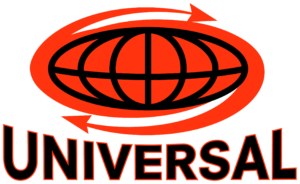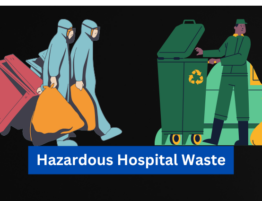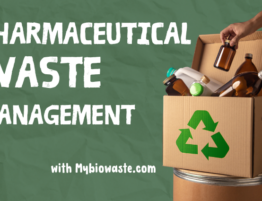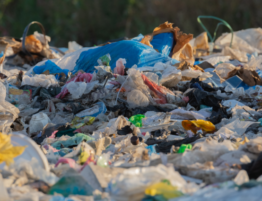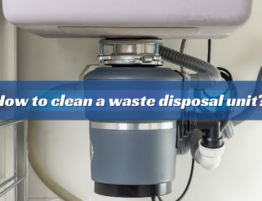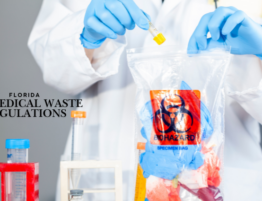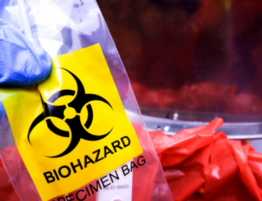
Proper medical waste disposal is not only crucial for ensuring the safety of healthcare workers and the public but also for complying with local, state, and federal regulations. Whether you run a hospital, medical clinic, dental practice, or laboratory, understanding the importance of proper waste management is essential. Choosing a reliable and licensed medical waste disposal company can help you stay compliant while safeguarding the environment and public health.
In this article, we’ll explore why medical waste disposal is so important, the types of waste that require special handling, and how to choose the right Medical Waste disposal service in Tampa.
Why Medical Waste Disposal Matters
Medical waste includes any waste generated in the diagnosis, treatment, or immunization of humans or animals. If not managed correctly, this waste poses serious risks, including the spread of infections, injuries from sharps, and environmental hazards. Healthcare providers must ensure proper disposal to avoid penalties and prevent potential harm to patients, staff, and the community.
Inadequate medical waste disposal can lead to contamination of water supplies, soil, and air, which can result in public health crises. Proper disposal is also crucial for reducing the environmental impact of hazardous substances, like chemicals and pharmaceutical waste. By following best practices for disposal, healthcare facilities help minimize these risks.
Types of Medical Waste
Medical waste comes in many forms, and not all of it is considered hazardous. However, any waste that is contaminated with bodily fluids, pathogens, or dangerous chemicals must be handled with care. Here are the primary categories of medical waste:
- Infectious Waste: This includes anything that has been contaminated by blood, body fluids, or other infectious materials, such as used bandages, gloves, and surgical instruments.
- Pathological Waste: This includes human tissues, organs, and body parts, as well as contaminated body fluids.
- Sharps Waste: Needles, scalpels, syringes, and other sharp objects fall into this category. Proper disposal of sharps is essential to prevent needlestick injuries.
- Pharmaceutical Waste: Expired, unused, or contaminated drugs, including vaccines and chemicals, need specialized disposal methods to prevent contamination.
- Chemical Waste: Hazardous chemicals, such as disinfectants and solvents, require careful disposal to avoid environmental damage.
- Radioactive Waste: Used in certain medical treatments, radioactive materials must be disposed of by specialized services in compliance with strict regulations.
Choosing a Medical Waste Disposal Company in Tampa
Selecting the right medical waste disposal provider is essential to ensure your facility stays compliant with all local, state, and federal regulations. Here are some tips for choosing a trusted partner for your waste disposal needs:
- Licensing and Certification: Ensure the medical waste disposal company you choose is licensed and certified to handle medical waste in compliance with OSHA, EPA, and state regulations. This guarantees that they follow the necessary safety and environmental standards.
- Reputation and Customer Reviews: Check customer reviews to gauge the company’s reliability. A reputable service provider should have a proven track record of safety, efficiency, and customer satisfaction.
- Experience and Expertise: Choose a company that specializes in medical waste management. An experienced provider will have a better understanding of the specific needs of healthcare facilities and offer tailored solutions.
- Compliance with Regulations: Medical waste disposal is heavily regulated by both state and federal laws. Make sure the company complies with OSHA’s bloodborne pathogens standards and the EPA’s guidelines for hazardous waste. In Florida, medical waste disposal must also adhere to specific state regulations outlined by the Florida Department of Environmental Protection (FDEP).
- Cost-Effectiveness: Compare pricing between different companies, but don’t prioritize cost over safety and reliability. Choose a service that offers value for money while meeting all regulatory requirements.
- Waste Collection and Disposal Methods: Understand the methods used by the disposal company to handle and dispose of waste. Look for companies that utilize safe, environmentally friendly disposal techniques such as autoclaving, incineration, or other approved methods.
- Emergency Services and Flexibility: A good provider should offer flexible services, including emergency waste removal, to ensure your facility can handle unexpected waste generation.
Best Practices for Medical Waste Disposal
To ensure the safety and compliance of your medical waste disposal practices, here are some best practices healthcare facilities should follow:
- Use Proper Containers: Ensure that all medical waste is stored in the correct containers, such as puncture-resistant sharps containers and leak-proof bags for infectious waste. Proper labeling is also crucial for easy identification and safe handling.
- Employee Training: Healthcare workers should be trained regularly on the safe handling and disposal of medical waste. Training should include the identification of different types of waste, safe disposal procedures, and how to deal with emergency situations.
- Regular Inspections: Conduct regular inspections to ensure that waste disposal practices are being followed properly. This includes checking that containers are properly sealed, waste is disposed of in a timely manner, and any hazardous materials are managed appropriately.
- Maintain Accurate Records: Keep detailed records of all medical waste disposal activities, including pick-up schedules, waste tracking, and certificates of disposal. This is essential for compliance and for auditing purposes.
- Ensure Proper Segregation: Different types of medical waste must be segregated at the point of generation to ensure proper disposal. For example, sharps waste should be placed in a designated sharps container, while pharmaceutical waste should be kept separate.
- Follow State and Federal Guidelines: Familiarize yourself with and adhere to all relevant medical waste disposal regulations. This includes following OSHA guidelines for bloodborne pathogens and the EPA’s guidelines for hazardous waste disposal. In Florida, ensure your facility complies with state-specific rules set by the Florida Department of Environmental Protection (FDEP).
Final Thoughts
Proper medical waste disposal is not just a regulatory requirement—it’s a critical aspect of protecting public health and the environment. By partnering with a trusted, licensed provider in Tampa, healthcare facilities can ensure their waste is managed safely and in compliance with all relevant laws.
For more detailed information on solutions, visit My Bio Waste to explore medical waste disposal services in Florida, including Tampa. Ensuring your facility stays compliant, safe, and environmentally responsible has never been easier.
Contact:
Phone: 855-276-9246
Email: info@mybiowaste.com
Address: 4459 Industrial Park Rd. Green Cove Springs, FL 32043
FAQs
Which method is best for medical waste disposal?
The easiest way to get rid of biological waste from hospitals is to incinerate it, which is the process of burning toxic waste into ashes.
How to dispose of medical waste?
Alternative techniques for disposing of biomedical waste
- Burning.
- Disinfection With Chemicals.
- Both Dry And Wet Heat Treatment (Autoclaving).
- Illumination Using Microwaves.
- Disposal Of Land.
- Inertia.
What are the top 3 medical waste?
Sharps, infectious, radioactive, and hazardous waste are the four main categories of medical waste. Although the disposal requirements for each type vary, many need to be handled by a medical waste disposal business. All are regarded as hazardous, and if not treated correctly, there may be long-term repercussions.
How to autoclave waste?
Prepare waste by loosely tying bags, loosening lids, or loosely covering with foil to enable steam to circulate. Put autoclave tape on. Use a closable tub with a locking lid if you must move waste through public spaces, and bring the autoclave tub or tubs. Put garbage in a leak-proof autoclavable tub at the autoclave.
Who regulates biomedical and other types of waste in Florida?
Facilities that produce, transport, store, or handle biological waste using methods other than incineration fall under the primary jurisdiction and accountability of DOH. For the final disposal and incineration of biomedical waste, DEP is primarily in charge.
What is included in medical waste?
Biohazardous, infectious, pathological, pharmacological, and sharps wastes produced in a medical facility when treating patients or animals are all considered medical waste.
